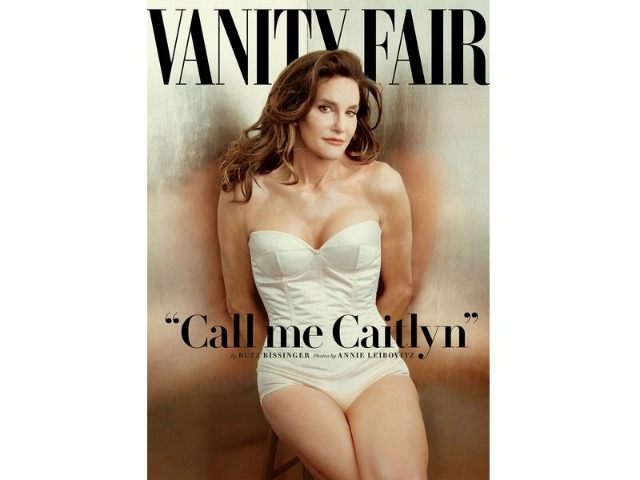Brendan O’Neill, the editor of spiked, explains why we’re harassed by Bruce Jenner, Rachel Dolezal, campus protestors, progressives and other people who demand that you validate their demeaning, temporary and preposterous ‘identities.’
Nothing speaks more profoundly to the crisis of character than the phrase, ‘I identify as…’. In the past, individuals were. ‘I am a builder.’ ‘I am a mother.’ ‘I am a Jew.’ There was a confidence, a certainty, to their sense of identity, and to their declaration of it. ‘I am.’ Today, individuals identify as something. ‘I identify as working class.’ ‘I identify as non-binary.’ Or, in the notorious case of Rachel Dolezal, the American white woman who effectively blacked-up as she rose up the ranks of the NAACP, ‘I identify as black’. The rise of the i-word in our definition of ourselves, the ascendancy of what is called ‘self-identification’, is one of the most notable developments of the 21st century so far. It speaks to a shift from being to passing through; from a clear sense of presence in the world to a feeling of transience; from identities that were rooted to identities that are tentative, insecure, questionable.
Those words ‘I identify as’ – whether they’re being uttered by Caitlyn Jenner as she unveils her newfound womanhood or by an eco-friendly New York Times writer who says ‘I identify as a mammal’ – feel strikingly contingent. They speak to changeability. The undertone is ‘I identify as such-and-such for now’…
Ours has been branded an era of identity politics… But the truly notable thing about today is not so much the obsession with identity – it’s the instability of identity. Humans have been hunting for identity for centuries. The instinct to define ourselves, to project ourselves into the world, is strong. And there’s nothing wrong with it. What’s new today is that identity has become an incredibly subjective phenomenon. ‘I identify as…’ Where once an individual’s identity was informed, or shaped, by experience and belief, through an engagement in the public sphere or with a party or association, today identities are self-consciously and often defensively constructed…
The subjectivity of identity construction, the rise of the contingent diktat ‘I identify as’, is throwing public life into disarray. Social norms and institutions we once took for granted are disorganised, sometimes crushed, by the rise of self-declared identities. Even filling in a form has become a minefield. The UK government’s public consultation document on gay marriage didn’t ask those who chose to fill it in if they were men or women; it asked: ‘Is your gender identity the same as the gender you were assigned at birth?’ It was an implicit acknowledgement of the categorical disarray of the 21st century, where it must always be allowed that people might have shunned their objective identities – in this case male or female – for a self-designed one…
… In its recently rewritten mission statement, Smith College, one of America’s best-known women’s universities, says it is ‘absolutely’ still a women’s institution. But it also says that ‘applicants who were assigned male at birth but identify as women are eligible for admission’. How does Smith decide who is a woman? It doesn’t. It says: ‘With regard to admission, Smith relies upon the information provided by each student applicant… Smith’s policy is one of self-identification. To be considered for admission, applicants must select “female” on the Common Application.’ So a man can get into Smith by self-identifying as a woman. That makes him a woman…
… What we are faced with in the 21st century is the very serious situation where all the objective underpinnings of human identity have frayed or died. All those things individuals once defined themselves through – nation, church, work, family – have corroded in recent decades. We live in a post-national era where shamefacedness about our nations’ pasts is preferred over questionable national pride. A phoney cosmopolitanism that explicitly eschews ideas of national identity is now promoted by our elites. Churches in the West are in constant crisis, reeling from one scandal to another, and seemingly lacking the moral resources to withstand the tidal wave of relativism. In an era when few know (or are willing to say) what is right and wrong, churches have lost their purchase, and shedded worshippers…
What is today referred to as the rise of identity politics is in truth the hollowing out of the institutions, beliefs and freedoms around which life and identity were shaped and cohered for centuries. It is a crisis not merely of politics, or class, or the left; it is a crisis of character, a questioning of what it means to be human, an uncertainty as to how we become fully human. Addressing the emergence of new, weak identities, and the corresponding creation of a therapeutic industry and new forms of moral censure to prop up these identities, will require more than ridiculing the new left or the so-called ‘identitarian movement’.
It demands nothing less than the reconstruction of public life, and the rediscovery of our faith in the strong individual who both makes and is made by the world, rather than simply needing to be consoled by it. It requires that we refuse to acquiesce to alienated, subjective identity-making, and instead recreate the conditions in which people can develop their identity through the exercise of moral autonomy, and through creating and engaging in new institutions, new ideas and new societies.
Read it all here.

COMMENTS
Please let us know if you're having issues with commenting.